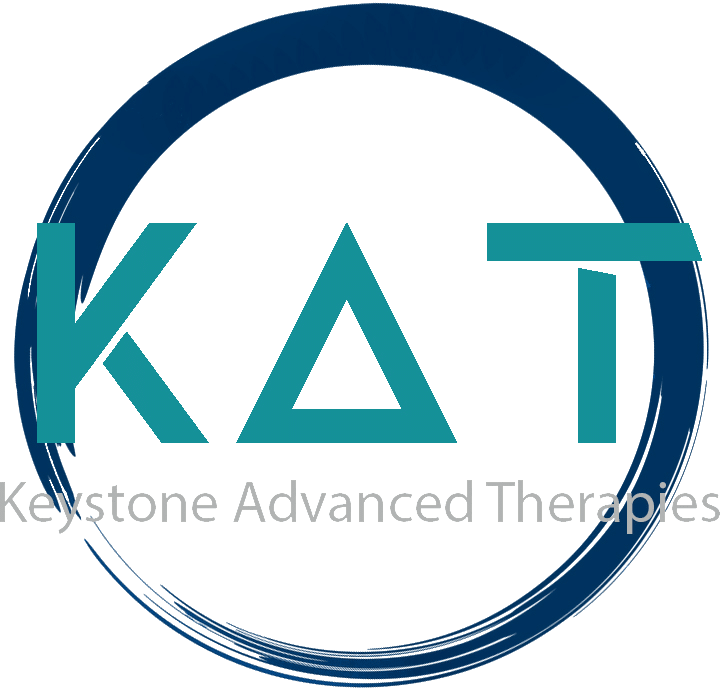Introduction
Welcome to our blog post on the benefits of advanced ketamine therapy for mental health. In today’s fast-paced world, many individuals are seeking alternative treatments for their mental health conditions. Traditional therapies and medications may not always provide the desired relief, leading people to explore new options. That’s where advanced ketamine therapy comes in.
Ketamine therapy has gained significant attention in recent years for its ability to effectively treat a range of mental health conditions, including anxiety, depression, PTSD, and more. This innovative treatment has shown promising results in providing rapid relief from symptoms when other treatments have failed.
At Dr. Depue’s clinic, we understand the importance of finding the right treatment that works for you. Our compassionate staff and welcoming environment ensure that your journey towards improved mental health is both memorable and enjoyable. We believe in providing personalized care and support throughout your ketamine therapy experience.
In this blog post, we will delve deeper into the effectiveness of ketamine therapy in treating various mental health conditions. We will also discuss how ketamine works in the brain to provide rapid relief from symptoms, as well as important safety considerations and potential side effects associated with this treatment. Additionally, we will explore the role of ketamine therapy in managing chronic pain.
If you or a loved one is seeking an alternative mental health treatment that offers hope and relief, read on to learn more about the benefits of advanced ketamine therapy. Contact us today to request a free consultation and take the first step towards reclaiming your life from anxiety, depression, chronic pain, and more.
How Ketamine Works in the Brain
Ketamine is a unique medication that has gained attention for its potential in treating various mental health conditions. Understanding how ketamine works in the brain can help shed light on its effectiveness and provide insight into why it is considered a promising treatment option.
Neurotransmitter modulation
One of the key ways that ketamine exerts its effects is through neurotransmitter modulation. Neurotransmitters are chemical messengers in the brain that transmit signals between nerve cells, or neurons. Imbalances or abnormalities in neurotransmitters can contribute to mental health disorders such as anxiety, depression, and post-traumatic stress disorder (PTSD).
Ketamine acts on several neurotransmitter systems, including glutamate, serotonin, and dopamine. Glutamate is the most abundant excitatory neurotransmitter in the brain and plays a crucial role in synaptic plasticity, learning, and memory. Ketamine works by blocking certain receptors for glutamate called N-methyl-D-aspartate (NMDA) receptors. This blockade leads to an increase in glutamate release, resulting in enhanced synaptic plasticity and improved communication between neurons.
In addition to modulating glutamate, ketamine also affects other neurotransmitters such as serotonin and dopamine. Serotonin is involved in regulating mood, appetite, sleep, and other functions. By increasing serotonin levels, ketamine may help alleviate symptoms of depression and anxiety.
Dopamine is another important neurotransmitter associated with reward pathways and motivation. Ketamine has been found to increase dopamine release in certain regions of the brain, which may contribute to its antidepressant effects.
By modulating these neurotransmitters, ketamine helps restore balance and improve communication between different regions of the brain. This modulation is thought to play a crucial role in alleviating symptoms of mental health conditions.
Neuroplasticity and synaptic connections
Another way that ketamine works in the brain is by promoting neuroplasticity and forming new synaptic connections. Neuroplasticity refers to the brain’s ability to change and adapt in response to experiences, learning, and environmental factors.
Research suggests that ketamine can enhance neuroplasticity by promoting the growth of new dendritic spines, which are tiny protrusions on neurons that form synapses. These synapses allow for communication between different neurons and are essential for normal brain function.
Studies have shown that ketamine increases the density and function of dendritic spines in certain regions of the brain, particularly in the prefrontal cortex. The prefrontal cortex is involved in higher cognitive functions such as decision-making, emotional regulation, and social behavior.
By promoting the growth of new synaptic connections, ketamine may help restore neural circuits that have been disrupted or damaged by mental health conditions. This rewiring of neural networks can lead to improved mood, cognition, and overall mental well-being.
Safety Considerations and Potential Side Effects
When considering any medical treatment, it is important to prioritize safety and be aware of potential side effects. Ketamine therapy is no exception, and it is crucial to receive treatment from qualified professionals in a monitored environment.
Medical supervision and monitoring
Ketamine therapy should always be administered under the supervision of a trained medical professional. This ensures that the treatment is tailored to individual needs and that any potential risks are minimized. The expertise of these professionals allows for accurate dosing and monitoring during the session.
During ketamine therapy, patients may experience dissociative effects or altered perception of time and space. These effects can be disorienting, which is why it is essential to have medical supervision throughout the treatment. Professionals can provide support and reassurance during these experiences, ensuring a safe environment for patients.
After the session, ongoing monitoring is necessary to assess any lingering effects or potential complications. Medical professionals will evaluate how patients respond to the treatment and make adjustments as needed. This personalized approach helps optimize the effectiveness of ketamine therapy while prioritizing patient safety.
Possible side effects
Like any medication or therapeutic intervention, ketamine therapy does carry some potential side effects. It is important to understand these risks before undergoing treatment.
Common side effects of ketamine therapy can include dizziness, nausea, increased heart rate, and elevated blood pressure. These symptoms are usually mild and subside shortly after the session ends. However, it is crucial for medical professionals to monitor patients closely during this time to ensure their well-being.
In rare cases, more severe side effects can occur. These may include hallucinations, confusion, or even psychological distress. It’s important for patients to communicate openly with their healthcare provider if they experience any unusual or distressing symptoms during or after ketamine therapy sessions.
To manage and mitigate potential risks associated with ketamine therapy, healthcare providers take several precautions. They carefully screen patients for any pre-existing medical conditions or medications that may interact with ketamine. Additionally, they adjust the dosage and treatment plan based on individual needs to minimize the risk of adverse effects.
Ketamine Therapy for Chronic Pain Management
Chronic pain can significantly impact a person’s quality of life, making even the simplest tasks unbearable. Traditional pain management methods may not always provide adequate relief, leaving individuals desperate for alternative treatments. Ketamine therapy has emerged as a promising option for chronic pain management, particularly in conditions like Complex Regional Pain Syndrome (CRPS) and psychogenic pain.
CRPS and Psychogenic Pain Treatment
CRPS is a chronic pain condition that typically affects an arm or a leg and is characterized by intense burning pain, swelling, and changes in skin color and temperature. Psychogenic pain, on the other hand, refers to pain that is caused or worsened by psychological factors such as stress or emotional trauma. Both conditions can be debilitating and greatly affect a person’s overall well-being.
Ketamine therapy has shown remarkable effectiveness in providing relief for individuals with CRPS and psychogenic pain. By targeting specific receptors in the brain, ketamine works to interrupt the transmission of pain signals, offering rapid relief from symptoms. This unique mechanism of action sets it apart from traditional analgesics and opioids which primarily mask the perception of pain rather than addressing its underlying causes.
Furthermore, ketamine therapy has been found to have neuroprotective properties that promote healing and reduce inflammation associated with chronic pain conditions like CRPS. Its ability to modulate glutamate receptors in the brain helps restore normal signaling pathways and alleviate hypersensitivity often experienced by individuals with these conditions.
Dr. Depue’s Approach
Dr. Depue takes a personalized approach to ketamine therapy for chronic pain management. With years of experience in administering ketamine infusions, he understands the importance of tailoring treatment plans to each patient’s unique needs.
During an initial consultation, Dr. Depue conducts a thorough assessment to determine if ketamine therapy is suitable for the individual’s condition. He takes into account their medical history, current medications, and any previous treatments they may have undergone. This comprehensive evaluation ensures that the patient receives the most appropriate and effective treatment.
Once deemed eligible for ketamine therapy, Dr. Depue designs a personalized treatment plan that includes the optimal dosage and infusion duration for the individual. He closely monitors their response to the treatment, making any necessary adjustments along the way to ensure maximum benefit.
Dr. Depue’s compassionate and supportive approach creates a safe and welcoming environment for patients undergoing ketamine therapy. He understands the physical and emotional toll that chronic pain can take on individuals, and strives to provide not only relief from their symptoms but also emotional support throughout their journey towards recovery.
Conclusion
In conclusion, advanced ketamine therapy offers a promising solution for individuals seeking alternative mental health treatments. This innovative treatment has shown remarkable effectiveness in alleviating symptoms of anxiety, depression, PTSD, and other mental health conditions. By targeting specific receptors in the brain, ketamine works rapidly to provide relief and improve overall well-being.
One of the key advantages of ketamine therapy is its ability to provide rapid relief from symptoms. Unlike traditional antidepressant medications that can take weeks or even months to show results, ketamine therapy offers almost immediate improvement in mood and mental state. This is particularly beneficial for individuals who are experiencing severe distress and need fast-acting treatment options.
Safety considerations and potential side effects are always important factors to consider when exploring any medical treatment. While ketamine therapy is generally safe when administered by trained professionals in a controlled environment, it is essential to work with a qualified medical provider who specializes in this type of treatment. They will ensure proper dosing and monitor any potential side effects to ensure the best possible outcome.
Furthermore, ketamine therapy has also been found to be effective in managing chronic pain. It can provide relief for individuals suffering from conditions such as complex regional pain syndrome (CRPS) and psychogenic pain. By targeting the NMDA receptors in the brain, ketamine helps interrupt pain signals and reduce inflammation, offering much-needed respite for those living with chronic pain.
If you are seeking an alternative mental health treatment that offers rapid relief from symptoms, advanced ketamine therapy may be worth considering. Our compassionate staff and welcoming environment strive to create a supportive atmosphere for your treatment journey. Contact us today to request a free consultation and learn more about how advanced ketamine therapy can improve your mental health and overall well-being.
Remember, you don’t have to face your mental health challenges alone – there are effective treatments available that can help you regain control of your life. Take the first step towards healing and contact us today.










